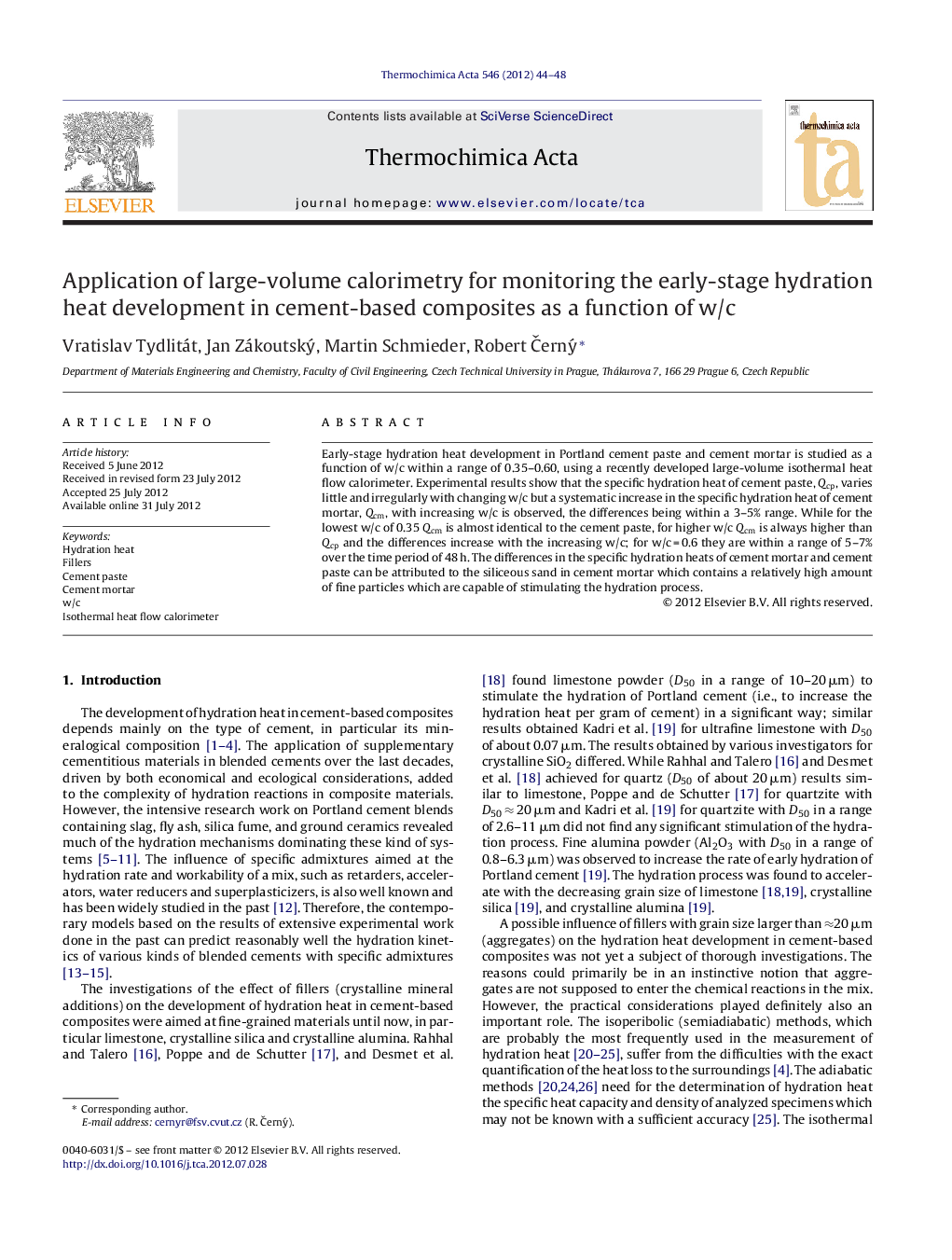| Article ID | Journal | Published Year | Pages | File Type |
|---|---|---|---|---|
| 674072 | Thermochimica Acta | 2012 | 5 Pages |
Early-stage hydration heat development in Portland cement paste and cement mortar is studied as a function of w/c within a range of 0.35–0.60, using a recently developed large-volume isothermal heat flow calorimeter. Experimental results show that the specific hydration heat of cement paste, Qcp, varies little and irregularly with changing w/c but a systematic increase in the specific hydration heat of cement mortar, Qcm, with increasing w/c is observed, the differences being within a 3–5% range. While for the lowest w/c of 0.35 Qcm is almost identical to the cement paste, for higher w/c Qcm is always higher than Qcp and the differences increase with the increasing w/c; for w/c = 0.6 they are within a range of 5–7% over the time period of 48 h. The differences in the specific hydration heats of cement mortar and cement paste can be attributed to the siliceous sand in cement mortar which contains a relatively high amount of fine particles which are capable of stimulating the hydration process.
► Early-stage hydration heat development is studied for w/c within a range of 0.35–0.60. ► Specific hydration heat of cement paste, Qcp, varies little with changing w/c. ► Specific hydration heat of cement mortar, Qcm, increases with increasing w/c. ► The differences in Qcp and Qcm are attributed to the siliceous sand in cement mortar. ► Fine sand particles are capable of stimulating the hydration process.
